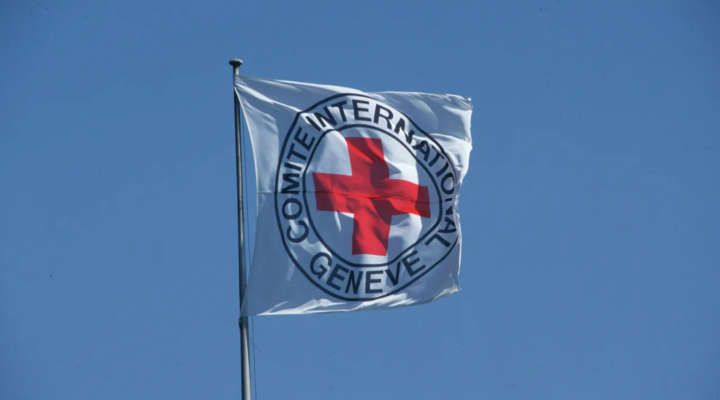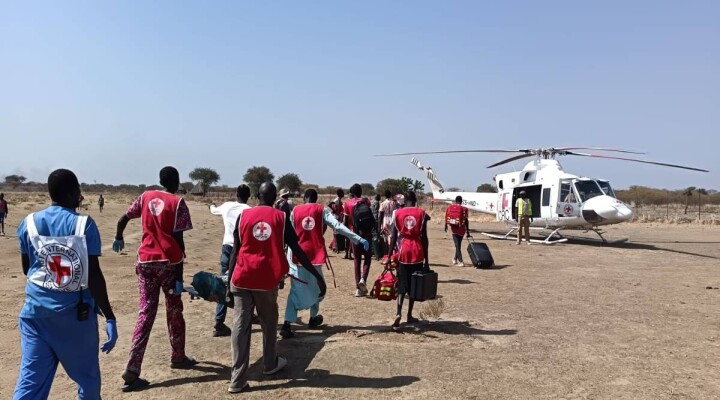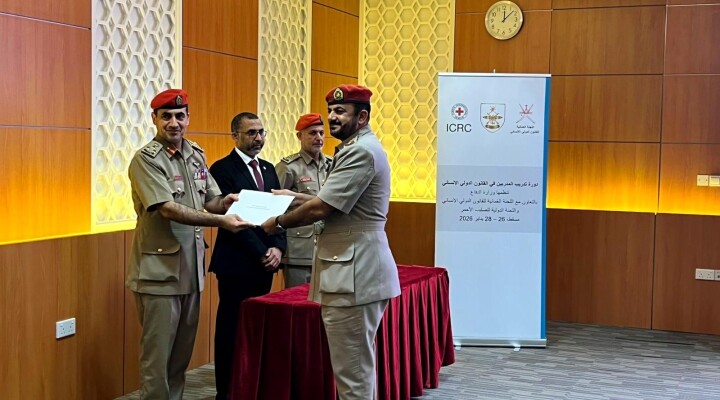UKRAINE: Conflict continues to take huge toll on hundreds of thousands of people daily
People’s humanitarian needs in Ukraine must not be overlooked or forgotten. This conflict in Eastern Ukraine continues to inflict a heavy toll on people’s families and homes every day.
Hundreds of thousands of people living close to the line of contact regularly suffer from disrupted access to food, water and electricity, and hundreds of people are still searching for their missing family members. Thousands of people, civilians and those fighting, have been killed or injured.
This is a conflict that hits people daily on personal, psychological and emotional level, bringing death, injury, separation from loved ones as well as the huge mental toll of ongoing violence and insecurity. The most basic of daily tasks are now difficult or impossible as damage to essential water, gas and electricity infrastructure – including from explosive weapons - causes cuts and shortages, with huge knock-on effects far beyond the immediate area of fighting. Mines and unexploded ordnance pose another risk. Families have lost loved ones or seen them severely injured, including children, while they were working in fields, collecting firewood or simply playing in the yard.
On either side of the line of contact, the International Committee of the Red Cross supports affected people rebuild their lives and cope with the ongoing conflict. We help repair damaged houses, hospitals, schools, water facilities and other infrastructure. We also support livelihood programmes and work to improve conditions in places of detention, including by donating hygiene materials for COVID-19 prevention. We work with the families of missing people, support mental health and access to education programs, and carry out mine risk awareness activities. We have progressively stepped up our operations since 2014.
Note to Editors
- ICRC colleagues are available for interview from Kyiv and elsewhere in Ukraine.
- ICRC’s Ukraine operation is the organization’s tenth largest operation worldwide, with a budget of 73,5 million CHF for 2022.
- Established in 1863, the ICRC operates worldwide helping people affected by conflict and armed violence and promoting the laws that protect victims of war. A neutral, independent and impartial organization, its mandate stems essentially from the Geneva Conventions of 1949. it is based in Geneva, Switzerland, and works in more than 100 countries.
For more information and to arrange interviews:
Sanela Bajrambasic, ICRC Ukraine, +380952628049, sbajrambasic@icrc.org
Ruth Hetherington, ICRC Geneva, +41 79 217 32 23, rhetherington@icrc.org
SHOTLIST
On-screen credit ICRC
Duration: 02:39
Country/Location: Ukraine, various locations
Shooting date: 2021, various
Details of restriction if applicable: none
00:00 – 1:00
Opytne village, Donetsk Region, Ukraine
April 13, 2021
Various shots of destroyed buildings, exteriors and interiors, and ICRC teams speaking with local residents during visit to the frontline village Opytne. Of the 1000 or so residents before the conflict, only 38 remain. At least eight people from the village have been killed in the conflict.
01:01 - 01:40
Volnovakha city, Donetsk Region, Ukraine
March 15, 2021
Various shots of ICRC Water and Habitation teams providing support to the Donbas water company and steel pipe to repair the affected Vugledar pipeline, which suffers water loss of up to 15,000-20,000 cubic meters per month. Leaks affect the quality of people’s drinking water.
01:40 – 02:22
Zaporizhia city, Zaporizhzhia Region, Ukraine.
August 30, 2021
Various shots of mental health and psychosocial support for the families of missing people, a huge issue in the conflict and a priority for the ICRC. Families in a similar situation are brought together to meet and support each other, with specialist help.
02:23 – 02:39
Kyiv, Ukraine.
November 10, 2021
Various shots of donation of an extra two tonnes of anti-COVID 19 personal protective equipment and other medical supplies to Kyiv detention facilities. Since March 2020, the ICRC has supported the efforts of detention facilities on either side of the contact line to contain the spread of COVID-19 by providing expert advice and material assistance.
END



